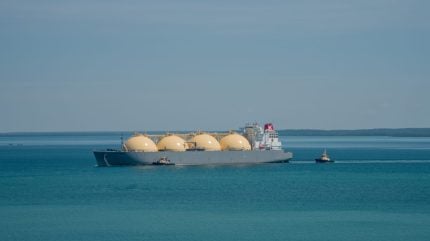
The Government of Australia has announced plans to issue new offshore exploration permits to boost gas supply, bolster the economy and strengthen renewables as the country moves towards net-zero emissions.
Madeleine King, the Minister for Resources and Northern Australia, is working towards finalising the permits for Esso and Beach Energy in the Otway and Sorrell Basins. The nation will use any gas found to support the domestic east coast market.

Discover B2B Marketing That Performs
Combine business intelligence and editorial excellence to reach engaged professionals across 36 leading media platforms.
King will also soon finalise exploration permits for Chevron, INPEX, Melbana and Woodside Energy on Australia’s west coast to bolster energy security in Western Australia.
The minister is also working on finalising ten permits for carbon capture and storage exploration.
She added: “As ageing coal generation comes offline, gas will continue to be needed to firm renewable energy generation and as a backup during peak energy use periods.
“Gas is critical for the transition, but it will be a diminishing proportion of our energy mix to 2050 as other storage technologies come online,” she added.

US Tariffs are shifting - will you react or anticipate?
Don’t let policy changes catch you off guard. Stay proactive with real-time data and expert analysis.
By GlobalDataAccording to the government statement, renewable energy generation in the National Electricity Market has risen 25% since the current administration took office, leading to all-time low levels of total emissions and emissions intensity.
“The most recent Australia Climate Change Authority’s Gas Inquiry Interim Report makes clear that the domestic east coast market may experience gas supply shortfalls as early as 2027,” the statement reads. It said that the continuation of supply difficulties may last until the middle of the 2030s unless fresh gas supply sources are created.
The government plans to enhance existing discoveries and infrastructure to align with its net-zero targets. However, approving offshore exploration permits does not automatically grant permission for new offshore gas production.
Climate activists are unhappy with the government’s decision, as they expect fossil fuel use to gradually phase out in the country.
Responding to the announcement, independent Climate Council head of policy and advocacy Dr Jennifer Rayner said: “We are already using less gas in Australia as homes and businesses embrace affordable and reliable clean energy. International demand for gas is forecast to peak before 2030 and sharply decline after that as all countries work to slash climate pollution.
“We need new policy thinking – including a real domestic gas reservation policy to meet Australia’s small and declining needs – not more gas projects,” she added.
However, the government believes that although gas demand will decrease significantly during the transition to clean energy, measures to ensure a stable supply will remain important to meet domestic needs.
“It is time for the Australian Government to end the release of offshore exploration licences for fossil fuels altogether. Australia, and the world, is increasingly being powered by clean, renewable energy – we do not need to stockpile new supplies,” Rayner said.
In 2023, Australia was the top producer of LNG globally, with a capacity of 88.70 million tonnes per year. According to a report by GlobalData, Offshore Technology’s parent company, Australia’s oil and gas production is used domestically and exported to the global market.
Australia’s primary natural gas producers include Chevron, Shell and Woodside Energy Group. Chevron held the top position in 2023, with production increasing by 0.14% from 2022. Shell was the second-largest producer with a 0.2% increase in production, while Woodside Energy Group ranked third, with a 5% decline from the previous year, as per GlobalData research.
According to a GlobalData report updated on 11 July 2024, Australian production decreased at a compound annual growth rate (CAGR) of 2% over the five years leading to 2023 and is projected to decline at a CAGR of 0.15% from 2024 to 2028.





